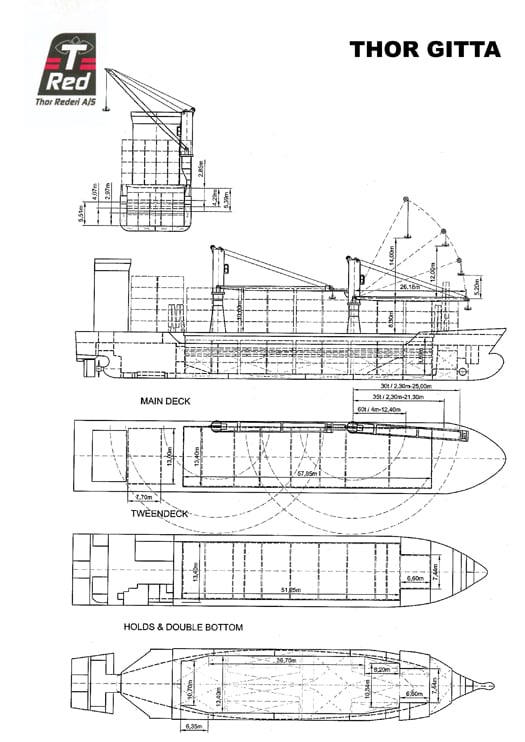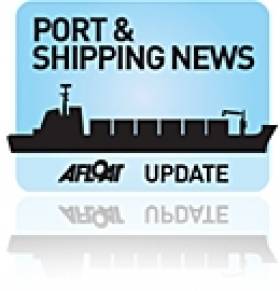Displaying items by tag: Bad Teoranta
Ferry-Tales of the Unexpected Continue in Galway Docks Drama
Despite successfully loading the first ferry, the 172 gross tonnes ferry Clann na nOileain yesterday morning, which took four hours, the time to secure the vessel on the cargoship's deck continued much longer than anticipted.
As a consequence this led to further delays in the the clearance of existing cargo so to enable sufficient space to load the second ferry onboard the Thor Gitta.

The 4,078 gross tonnes heavy-cargo liftship was due to have started loading the second ferry the 169 tonnes ferry Clann Eagle I yesterday afternoon but this has been delayed until 12 noon today.
The Danish-flagged Thor Gitta has been in Galway for over a fortnight. She berthed with her starboard side facing alongside the quay. With this orientation the cargoship's two-deck mounted cranes swing out on the opposite port side which were used to raise the first ferry out of the water on 7 April.
On that ocasion the forward sling snapped causing the Clann na nOileain to plunge into the waters within the port's single dock named the Dun Aengus Dock.
In recent daysThor Gitta has shifted berths which has resulted in the 100m long vessel berthing on her starboard side again next to the dock's quayside. The deck-mounted cranes on the port side continue to face out overlooking the open water of the dock.
The loading of Clann na nOileain is all the more skillfull considering that the 27m length of the ferry had to be hoisted and swung at an angle between the narrow span of the two deck mounted cranes.
For file photos of vessels in loading mode from the Rederi A/S fleet owners of the Thor Gitta click here.
Thor Gitta is the second chartered vessel called in to assist in the transportation of the two former Aran Islands fast-ferries.
The other cargoship, the longer 120 metre Patanal, ran aground at the end of March during stormy seas after dragging its anchor in Casla Bay, at the entrance to Rossaveal harbour. The 7,002 tonnes vessel sought initial repairs before leaving Galway Bay last week for further work in Germany.
The monuhull fast ferry pair were custom built in France for Bad Teoranta (trading as Aran Direct) but the company went into recievership.
At an auction held in Galway last month the vessels did not sale despite bids reaching €950,000, they were withdrawn at the auction. The ferries were later sold for a sum believed to be seven-figures to an operator based in the Indian Ocean island of Mauritius.
























































